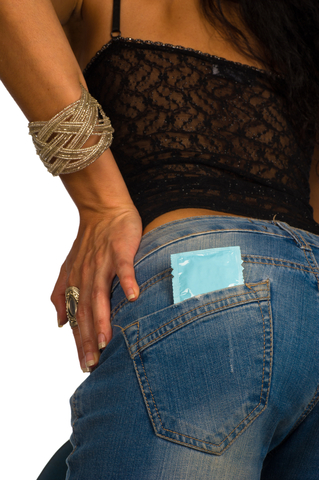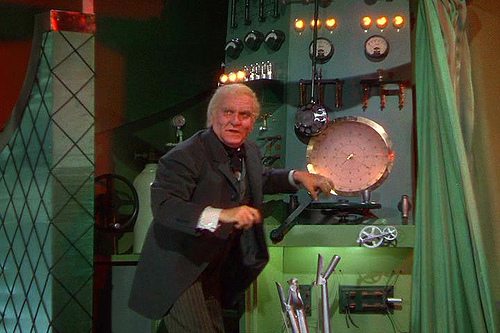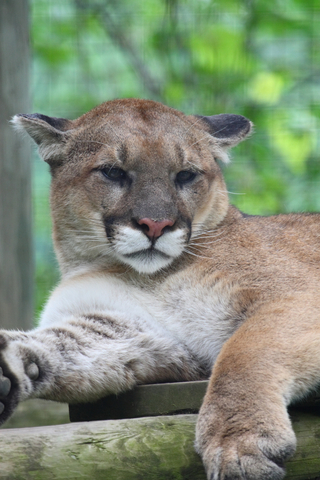Vaginal Atrophy: Is there an effective non-hormonal option?
While the GLAM squad works to convince you that the only sensible option to treat vaginal atrophy is Novo Nordisk’s Vagifem (a topical estrogen agent), I would like to share that a highly effective non-hormonal option exists. The rub? It’s only available in Europe and Canada. The thing is, I have tried it and while I may be an n of 1 in scientific circles, I want to share that it’s pretty darn amazing.
Before I do the reveal, I would like to get a bit personal and share my story. After years of experiencing no issues with vaginal dryness or pain during intercourse, the tables turned this past Summer. And so, I did the most sensible thing that I could do (short of reading Flashfree!); I made an appointment with my gynecologist. And after a thorough examination and a few tests for infections, she recommended that I try Estrace, another topical estrogen in the same category as Vagifem.
If you are a long time reader of Flashfree, you are well aware of how I personally feel about hormones. However, what I’ve not shared on this blog is that I have always had an extreme sensitivity to hormones, a sensitivity that I discovered in my early 20s when I started using the pill. That, coupled with the fact that my mother had breast cancer at an extremely early age made me wary of any type of hormone. And years later, when I started this blog and read all the data I could get my hands on, I was convinced that hormones were not a good route, regardless of their efficacy in addressing menopausal symptoms. Yet, regrettably I chanced it…again.
I want to emphasize that my experience is only mine and is not necessarily reflective of others’. However, within a month of using Estrace, I gained 6 pounds, was bloated, developed severe acne, had daily headaches, and experienced significant and irrational irritability. But damn, my vaginal tissues were once again moist.
Not. Good. Enough.
And so, I started researching my options. And stumbled across Gynatrof. 
Gynatrof gel is a natural topical agent comprised of microscopic beads (known as liposomes) are formulated to act as both a lubricant and a moisturizer. This technology helps to insure that the vaginal tissues remain moist between applications, and additionally, boosts hydration and elasticity. The gel contains several ingredients:
- Hyaluronic acid, a type of molecule found abundantly throughout the body’s connective tissue, the skin and the nervous tissues. Hyaluronic acid has the ability to store large quantities of water, thereby forming a natural, moisturizing liquid film when applied topically. More specifically, it helps to protect the vaginal skin from irritation and redness, itching and burning; enhances natural lubrication and may even help to aid healing of irritated vaginal tissue.
- Hops plant extract, which has weak estrogenic effects and may help promote lubrication and elasticity. Hops have also been shown to possess antibacterial properties and are sometimes used for leg ulcers.
- Vitamin E, which the manufacturer says reduces inflammation and prevents aging of the vaginal area. If anything, vitamin E is believed to be an antioxidant that may help prevent or treat disease. It has also been used for centuries to treat the skin and has been shown to penetrate both the outer and next layer of the skin (epidermis, dermis, respectively).
Available in Europe since 2006, Gynatrof has proven safe and there have been no reports of estrogen-related sensitivity. It is also non-toxic should it be accidentally ingested.
My personal experience? I have been using Gynatrof for a month now. And I have had stellar results – no side effects, no sensitivity and no issues during intercourse.
As someone who regularly colors outside the lines, it’s no surprise that I was able to obtain Gynatrof. But more importantly, when I contacted a local compounding pharmacy to see if they could obtain it for me, they called back after several hours to inform me that they could not.
This is an OTC product in both Europe and in Canada. It has been on the market for eight years now. And yet, we do not have access to it in this country. Moreover, it works, at least for me. And it is a safe option for women who either cannot tolerate hormones or choose not to use them.
Anyone interested in starting a petition? I cannot endorse this product enough.
[Disclosure: I neither contacted the manufacturer or its representatives nor did either contact me to review Gynatrof. It worked so well for me that I wanted to share it with my readers]
Read More
Behind the curtain: sexual health and the culture of trust
[Frank Morgan as Oscar Diggs (aka The Wizard). All rights, MGM 1939.]
Sexual health in women. It’s truly a double-edged, damn if you do, damn if you don’t topic, wrought with landmines and a path paved with…profit. Especially female sexual dysfunction.
Female sexual dysfunction describes an amalgam of symptoms and issues around women and their sexual desire or lack thereof that include: a chronic lack of interest in sexual activity, avoidance of sexual contact, the inability to maintain excitement, difficulty in reaching orgasm after arousal, pain during intercourse, involuntary spasms that may prevent sexual penetration and genital pain following foreplay. A woman doesn’t have to experience all of them to be labeled as having female sexual dysfunction, but she must have at least one and it must cause distress.
Sounds fairly complicated, doesn’t it?
The literature and reams of data have shown that sexual function and desire in women rely on multitude of factors such as context, experience, personal attitudes, emotional closeness, wellbeing, social support and even a sense of purpose. And with the intersection and interaction of these factors, one would imagine it would take a miracle drug to combat more than one of these issues effectively and efficiently. That may be one reason why the FDA turned down the application for flibanserin a few years ago.
The back story on this ‘Female Viagra’ is that it is a antidepressant compound that is is believed to affect brain receptors and neurotransmittors that play a role in sexual response. Data presented a few years back at the European Society for Sexual Medicine conference demonstrated that in clinical studies, flibanserin significantly improved desire, sexual experience and sexual functioning in women when taken for at least six months. The majority of the women participating in these studies were pre-menopausal and had been diagnosed with hypoactive sexual desire disorder (HSDD), a condition that is characterized by a decline in sexual desire, a loss of intimacy, and distress. Yet, the FDA eventually turned down the application because they determined that despite these initial studies, the data, in concert, did not ultimately did not show that Flibanserin improved sexual desire any better than placebo. It was also associated with a number of different side effects.
Fast forward to a few weeks ago, when in response to a concerted lobbying effort by pharma, women’s organizations and even medical organizations the FDA held a two day hearing on female sexual dysfunction. And, while I did agree with that we need to ‘even the score’ to gain women’s health equity (and in so far as female sexual dysfunction goes, provide timely and effective treatments), at least four of the major sponsors of the so-called ‘Even the Score’ movement were major pharmaceutical companies with vested interests. Not surprisingly, one of these companies was Sprout Pharmaceuticals, manufacturer of Flibanerin. And, the plot thickens further…earlier this week, MedPage Today reported that the FDA hearing had an overrepresentation of individuals who had been recruited by drug companies to speak ; many had their way paid indirectly by Sprout.
Why am I sharing this and why are the stakes so great in women’s health? We are living in a time when the culture of trust is being called into question and as I wrote in a related piece on Medium a few weeks back, the culture of trust “is an integral part of women’s health and in no area has the delivery of healthcare been as exclusionary and disjointed.” Despite this gap, women are still the most frequent health information seekers, a behavior which I believe, relies on trust.
A report from the Lancet Commissions group recently stated that,“where profits take priority, the fact that health care functions in the public interest is as contestable as its business prospects are undeniable. Healthcare has, in many countries, become big business, especially when this business sees bodies as commodities to be exchanged and bartered in all of their parts.”
Here’s my point: if the information that is being delivered to women seeking care and knowledge places profit over health, then the culture of trust comes into question. If companies like Sprout Pharmaceuticals or even Novo-Nordisk hide behind the curtains of bloggers, women’s organizations and even some healthcare practitioners to highlight certain ‘diseases du jour’ if not ‘du semaine,’ then the culture of trust, like the system within which it is operating, is broken.
Professionally, I’ve worked with pharmaceutical companies and I understand when the efforts are pure and when they are not. However, be assured that I have never delivered information on this blog that would be considered lined with a conflict of interest. I have kept my promise to you to deliver information without motive. Unfortunately, I cannot say the same of many of my colleagues in the midlife women’s health space. That’s why, dear readers, I’ll be leaving it at the year’s end but more on that later. For now? I cannot encourage you enough: please look behind the curtain. After all, the All Mighty Wizard turned out to be a simple man from Kansas, didn’t he?
Read More
Guyside: Who’s MY cougar?
My kindly employer here asked the provocative question “Who’s your cougar?” earlier this week. When you read Liz’s post, you get a sense of the complex set of meanings surrounding the term “cougar”, as well as the minefield of assumptions and sexual mores that surround the people who are identified by self or others as cougars. So I thought I’d take on the question of the cougar from the guyside.
(Cougar not exactly as shown in video)
If you had asked me as a teenager whether cougars were good or bad — I likely would have been heartily in favour of them (if I would have believed they existed, as opposed to being mythological creatures like the Sirens). Anything that would have increased the chance of a little lovin’ would have been okay with me at that point. And being as timid a young man as I was, it would have taken more than the average amount of sexual aggression to turn me into “prey.” But by now, from the perspective of a long-term monogamous relationship, I see the term and those who bear it a bit differently (and, I hope, with a bit more subtlety).
Certainly, I think that there’s a double standard. I’ve seen some men I know move towards dating younger women as they age; it seems as if the age of the women they pursue remains static while their age advances year by year. Most of the time, that behavior is accepted without a second thought. A woman doing the same thing would quite likely not be given the same pass.
It also seems to me that the term “cougar” is very much tied to straight women. Some googling (which turned up some rather, er, explicit results) left me with one example of someone referring to a lesbian cougar. The person singled out? Ellen Degeneres. A quick search of Degeneres found that she had had a relationship with a woman 1o years younger than her, then later married a woman 15 years younger. Not exactly predatory, by my judgement.
What I think as I approach my sixth decade on the planet is this: there’s a big, complicated world out there. If two people find each other, and want to spend some fun-time together, good for them. If they want to spend a life together, good for them too. If you’re both adults (heck, I don’t even much care if three people or four or more are involved; that’s not my thing, but …) and not hurting anyone else in the process, then seek out whatever type of relationship provides you with fulfillment and happiness.
If calling a woman a “cougar” is simply a way to characterize her choice of younger sexual partners, that’s fine. But I think the levels of judgement that seem to accrue to those women make me more than a little uncomfortable using that term. Maybe I’m naive or idealistic, but I think we’re all a little bit more than our genitals.
Read MoreWho’s your cougar?
When you hear the term ‘cougar,’ what do you think of? The stereotypical older woman who prowls on unsuspecting young men? The powerful, wealthy woman who can attract young cubs to their fold simply because she can afford to look younger and has money to burn? The older, unmarried woman who only knows how to express her sexuality by publicly pursuing young men for sex?
Or, all of the above?
As women, we often get a bad rap when it comes to expressing our sexuality. So, I find it intriguing that social researchers have started to pay attention to the cougar moniker and whether or not it is a pejorative or a positive vision that expresses that women continue to have sex lives beyond the age of 40.
According to novel research published in the Journal of Aging Studies, the term ‘cougar’ originated with the launch of a dating website geared toward matching older women and younger men, noting that “the story is that one of the two women who founded the website was told by a nephew that the two ladies were like cougars in search of small, defenseless animals.” Since that time, various websites have been launched, annual Cougar Conventions held and hit television series (Cougar Town) broadcast.
Interestingly, it’s only recently that there has been a renewed interest in women’s sexuality in midlife and lord knows, I’ve explored the topic in great detail on FlashFree. However, stereotypes of women losing their sexual desirability, coupled with the overarching notion that women in menopause are equal to women who are sexually dysfunctional leaves little to the imagination or to reality; as the researchers point out, “the dominant sexual script for women over forty has been the frigid older woman.” Moreover, what about the woman who works hard at staying healthy, possesses a youthful demeanor and appearance and counter ideologies that dictate that they must act and dress a certain way? Or, a woman who dates a younger man because she likes him, not because she’s on the prowl for sex or needs arm candy?
The truth is that when a group of women ranging in age from the their 20s to their 60s were asked about the term “cougar” and what it meant to them, they overwhelmingly accepted the so-called behavior associated with the term while rejecting the label itself. “In other words, older women dating or pursuing younger men was accepted by some women as an alternative sexual script.” And why not?
Yet, some women interpreted the concept as positive, saying that the term was a descriptor for a strong, self-confidant decisive woman, a woman with sexual self-assurance and sexual confidence. Some liked the term because “they believed that it called attention to the positive aspects of older women dating younger men,” suggesting a “relationship dynamic [that] makes biological sense because it allows men and women to be in their ‘sexual prime’ at the same time.” Others were drawn to the term because the concept helped level the playing field, rallying against cultural norms and sexual double-standards that “dictate that only men should date younger partners.”
On the flip side? The women who viewed the term negatively found it insulting because it labeled women as aggressive and violent, masculinized them, conceptualized them at “on the prowl for a partner’s body rather than his mind.” Additionally, it might actually distort the picture of who pursued whom; in some cases, it is the younger man who does the pursuing.
The researchers note that “culture shapes our feelings about aging. Women who rejected the term did so because it conjured the image of a specific type of woman…who does not look like a regular woman or…who is desperate and fighting aging or who does not followed gendered norms for sexual interaction.” Yet, when they probed further, many of these women could embrace the idea that the term acknowledges that “women do not stop feeling sexual desire after turning forty,” …”a welcome alternative to images which dismiss them or make them invisible as sexual beings.”
Yet, for as many who have some sort of lapse in their sexual desire or function as they age, there are countless others who remain interested in and highly sexually active well into their 70s and 80s. The theme here is that “women’s experiences with sexuality and aging are far from uniform…and factors such as generation, relationship status, sexual orientation, cultural norms, health or partner’s health” all come into play.
Personally, I fall in the middle. I would like to believe that the sexual script is being rewritten for women as they age, that culture is beginning to accept that women don’t become invisible the minute that they hit age 40. And yet, I don’t care for the negative connotations — on the prowl, helpless young men, insatiable women. In an ideal world, women don’t have to defend every choice that is viewed as at odds with the norm, whether it’s pursuing a career while simultaneously raising children, deciding not to have children or get married, choosing a same sex partner, choosing a younger partner or maintaining health and appearance simply because it feels good. But we are far from that utopian vision and I highly doubt that we’ll realize it in my lifetime.
What do you think? Who’s your cougar?
Read MoreAn inconvenient truth: no glove, no…
 I’ve got something I want to share with you. Sadly, advanced reproductive age has nothing to do with whether or not a woman should use contraception. In fact, according to a literature review published several decades ago, the likelihood of reproductive sterility at age 40 is 40%, and at age 45, 80%. This means that the monthly risk of pregnancy, although declining with less frequent ovulation, may still be as high as 60%, depending on your age.
I’ve got something I want to share with you. Sadly, advanced reproductive age has nothing to do with whether or not a woman should use contraception. In fact, according to a literature review published several decades ago, the likelihood of reproductive sterility at age 40 is 40%, and at age 45, 80%. This means that the monthly risk of pregnancy, although declining with less frequent ovulation, may still be as high as 60%, depending on your age.
In a review published a few years back in the Advanced Access edition of Human Reproduction Update, investigators report that the decline in fertility among women in their 50s remains insufficient to prevent pregnancy. With the exception of hysterectomy, they point to copper and hormonal IUDs, both of which have failure rates of less than 1%.
Additional considerations when choosing a contraceptive method in midlife include:
- Menopausal stage, i.e. how frequent or infrequent are your menstrual periods?
- Menopausal symptoms
- Sexual issues, e.g., desire, lubrication or lack thereof
Although I am not a fan of hormones, selecting a hormonally-based contraception may help to address these particular issues.
So, how long do you need to wear protection? The investigators suggest that contraception should be continued until women become postmenopausal and attain a natural state of sterility. I’d add that if you are having intercourse with more than one partner, that you add another layer of protection — e.g. a condom — to prevent sexually transmitted diseases.
It may be inconvenient, but surely, not as inconvenient (or traumatic) as midlife pregnancy. Do yourselves a favour: use protection!
Read MoreValentine’s Day for the techie in you!
 Time to lose the chocolate and roses and get your tech data geek on this Valentine’s Day. Indiana University scientists who developed the Kinsey Reporter app (found here on Apple and here on Droid) say that they are turning this Valentine’s Day into a laboratory on sexual behavior during the holiday. Their survey, which is available through the mobile app, will collect data on sexual activity, public displays of affection, flirting, and unwanted experiences. Ultimately, they plan to aggregate global experiences that can be displayed geographically via interactive maps, timelines and charts.
Time to lose the chocolate and roses and get your tech data geek on this Valentine’s Day. Indiana University scientists who developed the Kinsey Reporter app (found here on Apple and here on Droid) say that they are turning this Valentine’s Day into a laboratory on sexual behavior during the holiday. Their survey, which is available through the mobile app, will collect data on sexual activity, public displays of affection, flirting, and unwanted experiences. Ultimately, they plan to aggregate global experiences that can be displayed geographically via interactive maps, timelines and charts.
(If you are unfamiliar with the Kinsey Institute, it is one of the world’s leading research organization on sexual health and knowledge. Moreover, a little known fact amongst even my closest friends is that my Aunt used to run the library; talk about kinky boots! But, I digress.)
In a related press release,Filippo Menczer, director of IU’s Center for Complex Networks and Systems Research (and a School of Informatics and Computing professor who helped design the app) says that they are beginning to see some interesting patterns as to how sexual activity varies by relationship status and are even able to dive deeper to ascertain things like the relationship between flirting location and outcome (sounds like data for the next dating app, right?!).
Go ahead; set your own sexpectations this V Day and crowdsource your loving. Who knows? You might just create the next great sexinfographic without trying!
Cheers to love!
Read More








